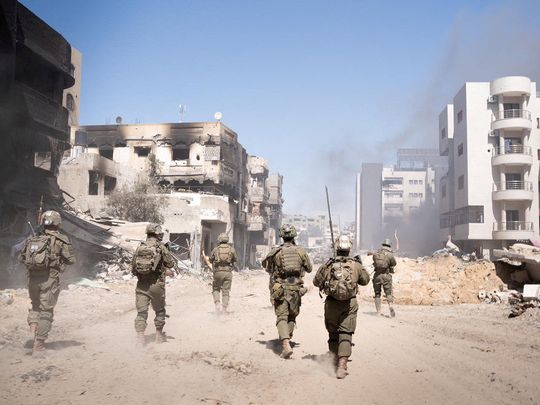
In the desolate landscapes of war-torn cities and villages that used to flourish with love and laughter, there exists a group of individuals who perish in silence, their stories fading into opacity amid the mayhem and turmoil of conflict. These forgotten souls are the civilians, the innocent witnesses trapped in the crossfire of a bitter and devastating struggle for land, rights, and freedom.
Children whose laughter has been replaced by sobs of sorrow, the women whose voices have been silenced by the thunderous roar of explosions and gunfire, and the elderly whose aching bodies display the scars of a lifetime of difficulties and suffering. Their deaths pass overlooked, their names buried in the endless list of fatalities, and their lives degraded to mere figures in an endless cycle of violence and catastrophe.
War is a vile and horrifying reality of human existence, and one of its most catastrophic consequences is the loss of life. While the media tends to focus on the heroic sacrifices and commitments of soldiers and civilians murdered in conflicts, this is the group of people whose deaths go unnoticed and unacknowledged — the forgotten victims of war.
In the ongoing conflict in Palestine, thousands of innocent men, women, and children have lost their lives in the crossfire between Israeli forces and Palestinian militants. These forgotten individuals are often disregarded and overlooked in the wider narrative of the Israeli-Palestinian genocide, downgraded to statistics in the escalating death toll.
Amid the uproar, brutal statistics and horrific realities arise. According to the United Nations, civilians (especially women and children) account for the vast majority of losses in conflicts worldwide. In Palestine, this entails countless lives lost, families split apart, and communities decimated. It’s been reported that there are 63,543 casualties, including 31,227 fatalities since 1948 (excluding 2023, which is the highest year Israeli forces killed Palestinians).
Breaking the cycle of violence
The United Nations Office for the Coordination of Humanitarian Affairs provides a dismal image of the situation, describing the terrible impact on Palestinian residents, including death, injury, displacement, and psychological damage. Vital necessities become luxuries when the availability of food, water, and medical care is hampered by insecurity and infrastructural disruptions.
These forgotten victims are civilian casualties of conflict, oblivious bystanders caught in the crossfire of power struggles and political turmoil. They are the children massacred in bombings while innocently playing in the streets, the women fatally injured while attempting to defend their family, the pure infants whose first breaths were deadly gasses, and the elderly who die due to a lack of access to medical care and basic needs.
The forgotten victims who die in conflicts, specifically in Palestine, are more than just casualties of violence; they are human beings with goals, dreams, and families who are left to mourn the loss of loved ones. Their fatalities are more than just numbers; they are a terrible reminder of the human cost of war and the price that it imposes on innocent lives.
It is crucial to acknowledge and honour these forgotten war victims, to recognise their humanity and the disastrous loss endured by their families and communities. Their deaths must serve as an urgent reminder of the critical demand for peace and justice in war zones across the world, as well as a call to action to break the cycle of violence and suffering that afflicts many nations.
As we reflect on the forgotten victims who perish in conflicts, especially in Palestine, Ukraine, Myanmar, Sudan, Democratic Republic of the Congo, and all the victims whom we haven’t had the chance to know their identity or where they are from; let us not forget their names, stories, and the horrifying effect of their unfortunate deaths.
Let us pledge to establish a world in which such unnecessary loss of life is no longer regarded as an unavoidable tragedy, but rather as a preventable catastrophe that must be tackled and avoided by all means. Only then can we sincerely respect the memories of those who have been forgotten amid warfare, ensuring that their lives were not lost in vain.
Maram Saleh, a Bahraini law student, finds inspiration in the realms of research and writing.








